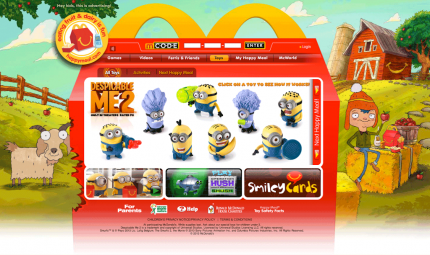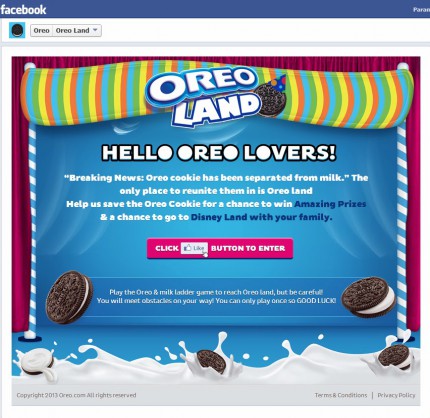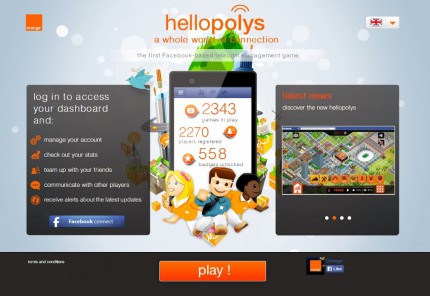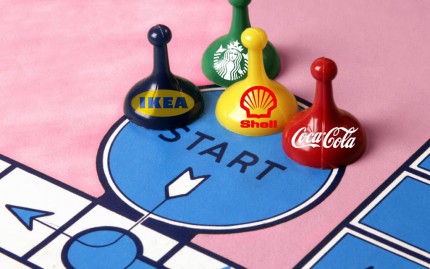When I was a child I liked going to McDonald’s because of the little promotional toys given away in ‘Happy Meals’. I didn’t even like the food that much but I would often beg my parents to take me to McDonald’s anyway. The fact that the toys changed so often and were always goodies from the last hot anime series or Disney movie only increased their appeal to the child I was (By the way, do you know that McDonalds is the largest toy distributor in the world?). What the 10-year-old-me never grasped, as I stood before the supermarket shelves choosing my morning cereals or powder chocolate according to what the toy inside the box would be, well assured that I was making use of my free-will to pick, is that I was no more than a pawn being played by marketers who knew all too well which toy would make me choose which brand.
With the popularization of tablets and mobile phones this trend only intensified and advergames prospered. Nowadays many brands are offering (most often for free) downloadable game apps for children. Lately I have seen a few Disney apps, Lego apps, a Cheetos app… In some cereal boxes you can’t find toys anymore, you will only get a code to access a game through an app or a website. If that game is even the slightest bit educational, it also gets the parents blessing.
In the meantime, the development of social media also brought a renewal in the game & contest marketing strategy. Ever since the beginning of the 2000’s, gamification has become marketers’ new mantra. Exit the old contests where you just returned a form with your name and address (possibly answered a question) and hoped to be drawned. Nowadays marketing must be participative, interactive and most of all engaging and fun, fun, FUN. The fact that childhood is mostly associated with positive memories (Disney heads the Top 100 Most Loved Companies with Nestlé close behind), is maybe the reason why brands try to appeal to our inner child by offering us opportunities to play.
Brands are incessantly coming up with new games to convince consumers to engage with them. And one must admit that we do play the game. Because people are more likely to share a game they had fun playing than a simple add, games are important to achieve the goal of reaching more people and creating brand awareness. Nowadays playing games and sharing your scores on social media is a mainstream practice that also help in making such games go viral. No later than a few weeks ago, the Coca-Cola Sweater Generator managed to gather a lot of attention as well as many participants. In the same way, this funny Facebook game by Oreo, Oreo Land, in which people must help get milk and cookie back together, is pretty popular. However it is not necessary to go to such lengths, a much simpler contest in which your consumers compete by submitting names to name your next product can be just as effective depending on your brand identity and core consumers.
Games have also become a legit recruitment and management technique. If you know anyone working in a HR department they will mostly confirm this: from startups to big companies, every business swears only by serious games. That’s an antinomy if I know one.
Educational and based on active learning, serious games are particularly useful in training adults. Based on inductive learning, serious games allow the users to learn by trying and experimenting success and failure. In an immersive experience such as serious games, the learner puts his knowledge into practice, corrects his mistakes, tries again, acquires automatic reflexes. That’s why serious games are especially adapted to training, communication, raising awareness or evaluation.
As far as I know, Hellopolys by Orange is globally recognized as one of the best corporate serious games. This simulation game, is a “city builder” type of game (like Sims City); the goal is to install a phone network while discovering the different jobs that define Orange’s business expertise. This game, available on Facebook, is a success because it targets both recent graduates and general public. Here the aim is not to actively recruit or train anyone but to promote the professional expertise of Orange’s employees.
Most global companies now possess their own serious games: Reveal or Brandstorm by L’Oréal, Trust by Danone, etc. Even the French Air Force has developed its own serious game. According to most companies, the main advantage of serious games is that they do not simply deliver a message but help the con
sumer understand the issues linked to a sector or a company.
What I am aiming at is: games are no longer meant for just kids. The entertainment they provide and their tendency to be addictive make them a great tool for brands. As they often call for engagement, they can help build a loyal customer base. Marketers should no longer be afraid, games won’t make their business look any less serious or professional, but they will add a touch of fun and likeability to their brand image.
So, let’s play !



